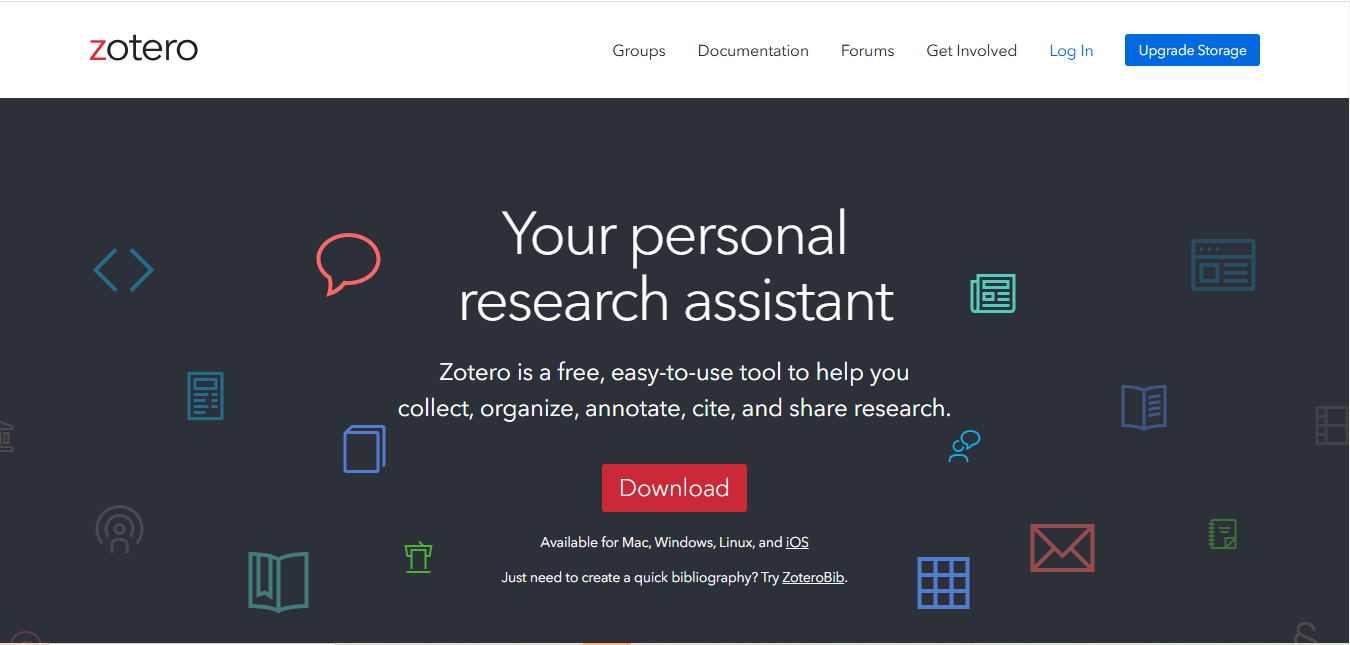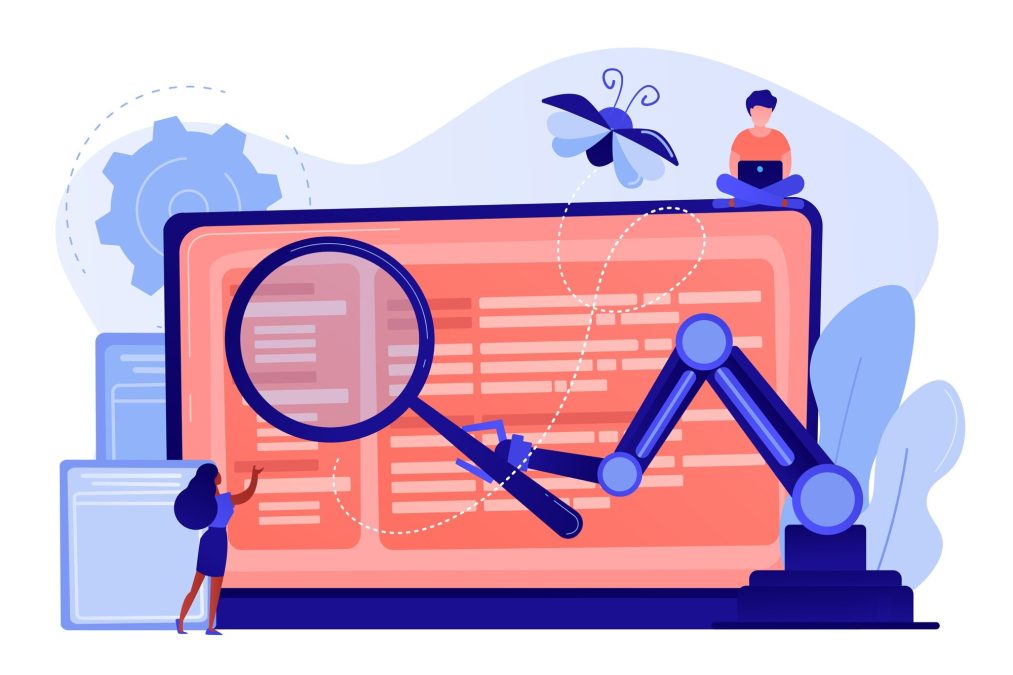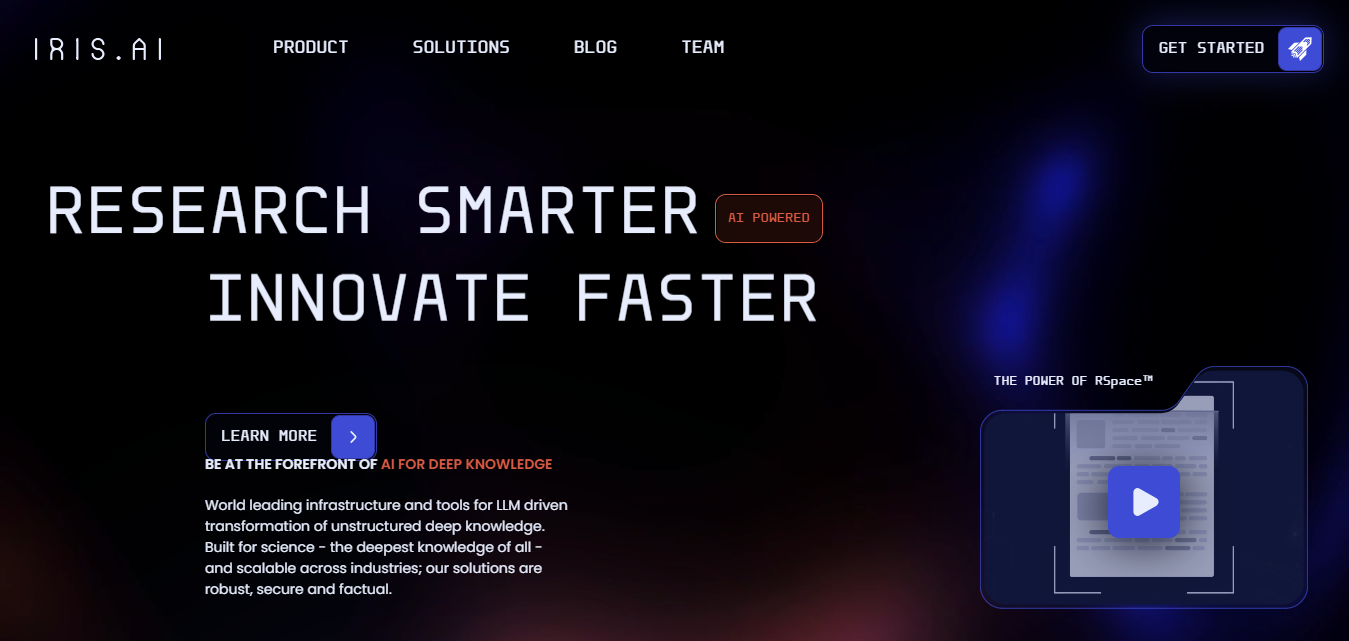How the Best AI Tools for Research Can Change Your Approach
1. Zotero

Why it’s a must-have: Zotero is a comprehensive tool that serves as a personal research assistant, capable of collecting, organizing, and sharing research items. This AI-powered tool is one of the Best AI tools for Research as it simplifies citation management and integrates seamlessly with most word processors.
Key Features
- Automatically extracts bibliographic information from PDFs.
- Syncs research data across devices.
- Helps organize large research projects.
Best for: Academics and students needing structured reference management.
2. Scrivener
Why it shines: Scrivener is more than just a writing tool; it’s an AI-driven solution designed for long research projects like theses and research papers. It ranks among the Best AI tools for Research due to its robust organization features.
Key Features
- In-depth outlining and note-taking features.
- AI-enhanced organization tools for research notes and chapters.
- Ability to compile reports in different formats.
Best for: Researchers who juggle extensive drafts and need a one-stop writing platform.
Also Read: 10 Best AI Apps to Help You Study Textbooks
3. Grammarly
How it helps: While primarily known as a writing assistant, Grammarly uses AI to enhance research papers and articles. As one of the Best AI tools for Research, it ensures that your work reads clearly and professionally.
Key Features
- Real-time writing feedback on grammar, clarity, and tone.
- Integrated plagiarism detection.
- Supports writing in multiple languages and styles.
Best for: Ensuring your research content is polished and error-free.
4. QuillBot
Why researchers love it: QuillBot is an AI paraphrasing tool that helps researchers rephrase content while retaining its original meaning. It’s considered one of the Best AI tools for Research for summarizing and refining text.
Key Features
- Multiple paraphrasing modes for different writing needs.
- Integrates with Google Docs for a smoother workflow.
- Offers grammar and sentence improvement tools.
Best for: Researchers needing quick rephrasing or clarity improvement.
5. EndNote
What sets it apart: EndNote stands out for its AI-driven bibliography management and citation formatting, solidifying its spot as one of the Best AI tools for Research.
Key Features
- Advanced bibliography generation and research management.
- Collaboration options for group projects.
- Supports integration with major research databases.
Best for: Researchers with complex projects involving numerous references.
Also Read: 10 Best AI Ask Research Tools Today
6. ChatGPT
Why it’s transformative: OpenAI’s ChatGPT supports researchers by generating summaries, outlining concepts, and providing quick answers to complex questions. As one of the Best AI tools for Research, it offers an interactive way to brainstorm and draft.
Key Features
- Generates comprehensive summaries from dense research material.
- Helps organize ideas and create structured outlines.
- Provides research assistance through conversational prompts.
Best for: Quick information retrieval and idea generation during the early stages of research.
7. DeepDyve
Why it’s useful: For researchers without easy access to academic journals, DeepDyve provides an AI-powered, cost-effective solution for renting articles, making it one of the Best AI tools for Research.
Key Features
- Access to millions of research articles and papers.
- Personalized recommendations based on reading history.
- Full-text search functionality.
Best for: Independent researchers seeking affordable access to academic resources.
8. Mendeley
The standout feature: Mendeley is an AI-powered reference manager and a favorite among researchers, making it one of the Best AI tools for Research due to its collaborative features and storage capabilities.
Key Features
- Built-in PDF reader and annotation tool.
- Automatic citation generation in various styles.
- Cloud-based storage for seamless access.
Best for: Collaborative research teams and those managing large research libraries.
Also Read: how to perform a ddos attack against a wordpress
9. SciSpace (Formerly Typeset)
Why it stands out: SciSpace is among the Best AI tools for Research due to its ease of use and ability to help researchers format papers to meet journal requirements.
Key Features
- AI-driven formatting assistance.
- Smart citation tools and reference management.
- Templates for thousands of journals.
Best for: Efficient manuscript preparation for submission.
10. Iris.ai
Why it’s cutting-edge: Iris.ai reads and maps research papers using AI, earning its spot as one of the Best AI tools for Research by simplifying literature reviews and finding connections between studies.
Key Features
- AI-powered document extraction and summarization.
- Keyword mapping and research clustering.
- Identifies research gaps.
Best for: Conducting comprehensive literature reviews quickly.
Comparison Table
| Name of Tool | Best for | Standout Feature | Pricing |
|---|---|---|---|
| Zotero | Academics and students needing structured reference management. | Automatically extracts bibliographic information from PDFs. | Free with optional storage plans |
| Scrivener | Researchers who juggle extensive drafts and need a one-stop writing platform. | In-depth outlining and note-taking features. | $49 (one-time purchase) |
| Grammarly | Ensuring your research content is polished and error-free. | Real-time writing feedback on grammar, clarity, and tone. | Free with premium options starting at $12/month |
| QuillBot | Researchers needing quick rephrasing or clarity improvement. | Multiple paraphrasing modes for different writing needs. | Free with premium options starting at $8.33/month |
| EndNote | Researchers with complex projects involving numerous references. | Advanced bibliography generation and research management. | $249.95 (one-time purchase) |
| ChatGPT | Quick information retrieval and idea generation during the early stages of research. | Generates comprehensive summaries from dense research material. | Free with subscription plans starting at $20/month |
| DeepDyve | Independent researchers seeking affordable access to academic resources. | Access to millions of research articles and papers. | Starting at $0.99/article or subscription options |
| Mendeley | Collaborative research teams and those managing large research libraries. | Built-in PDF reader and annotation tool. | Free with optional premium features |
| SciSpace | Efficient manuscript preparation for submission. | AI-driven formatting assistance. | Free with premium plans available |
| Iris.ai | Conducting comprehensive literature reviews quickly. | AI-powered document extraction and summarization. | Free with premium features starting at $15/month |
Wrapping Up-The Future of Research with AI Tools
Using the Best AI tools for Research can simplify every stage of the research process, from gathering data to writing and citing sources. By incorporating these Best AI tools for reseach into your workflow, you’ll save time and enhance the quality of your research. The AI tools listed above provide unique features that optimize productivity. Whether you’re a student, academic, or professional researcher, these Best AI tools for Research can help you conduct effective, efficient, and high-quality research.
Interesting Reads
10 Best Free WordPress Plugins







